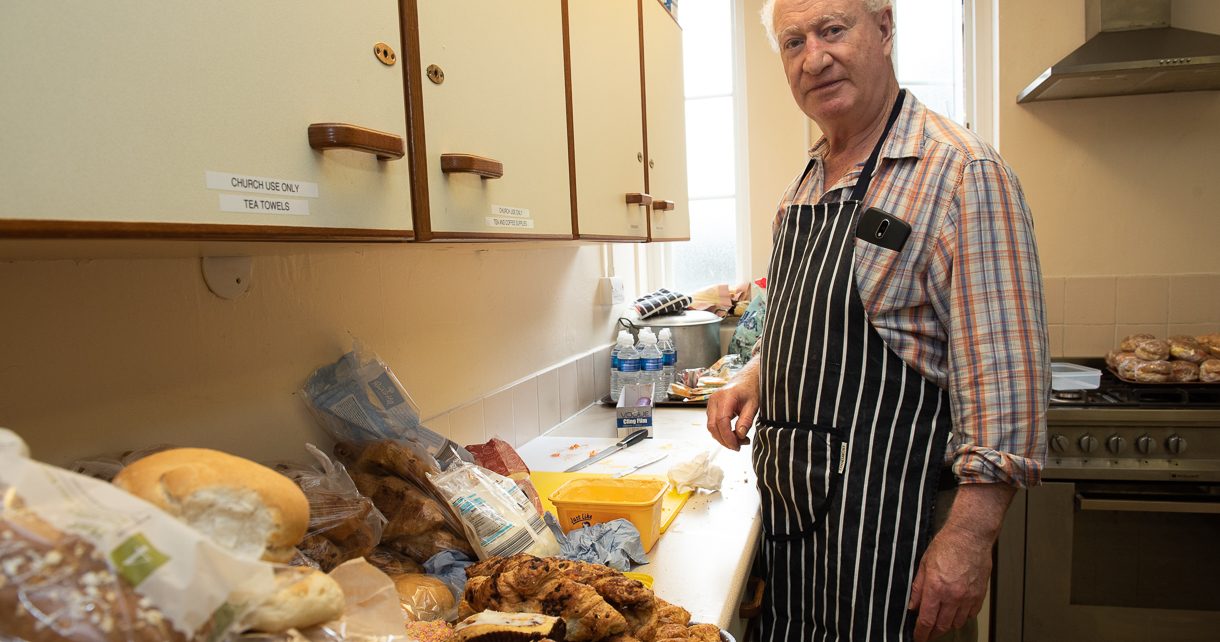And the cuts go on
The new Tory government under the leadership of Theresa May has sought to distinguish itself from its predecessor by claiming time and again to be on the side of working people – or in the latest parlance, â€just about managing’ families, â€jams’ for short.
This afternoon’s (November 23) Autumn Statement was meant to lay out the government’s concrete plans to support these families – to follow its rhetoric with action.
But in the end chancellor Phillip Hammond proved to be the logical heir to Osborne in his continued commitment to deep spending cuts, despite an attempt to give his Autumn Statement an anti-austerity gloss.
To be sure, there were giveaways meant to target those households who are â€just about managing’ – a reduction in taper rates to soften incoming cuts to Universal Credit (UC) was one headline pledge, which came amid concerted pressure from all sides of the political spectrum.
But as the Resolution Foundation has pointed out, the taper reduction will do little to help struggling families – for example, single parents will still lose £2800 a year under continuing UC cuts, with only some families gaining up to £200 after Hammond’s proposed changes.
A hike in the minimum wage was also meant to be a boon for low-paid workers, but a rise from the current £7.20 hourly rate to £7.50 next April isn’t much of a pay rise – and actually now sits below what it should be to meet the previous government’s target of £9 an hour by 2020.
“Once again a Conservative government had to be shamed into action over planned cuts to incomes, but the pennies on the Tory â€living wage’ still leave it far short of the actual living wage needed for people to meet the growing costs of living in this country,” Unite general secretary Len McCluskey said. “Low waged families will still lose thousands of pounds a year.”
Other measures in the Statement included a continued freeze in fuel duty and a ban on letting fees – all meant to show that the government supports struggling households.
Cancelled out
While all welcome measures in their own right, they risk being completely cancelled out once a looming cost of living crisis hits as the Office for Budget Responsibility (OBR) forecasted today (November 23) a grim coming months and years as the reality of Brexit sets in.
The OBR pointed to weaker demand and lower investment, driven by Brexit uncertainty and higher inflation, as the culprit behind sharply slower than projected growth in the next few years.
Despite years of austerity economics, which was intended to eliminate the deficit and take the UK’s public finances into surplus by 2020, the latest forecast has shown spending cuts to be an abject failure – instead of the projected surplus, there will be a projected deficit of £21bn. The OBR forecasts an extra £122bn in borrowing as a result of Brexit.
The national debt is set to spiral to 90 per cent of GDP in 2017/18 – the highest it’s been in the last 50 years.
The alarming state of public finances prompted Hammond to finally abandon his predecessor’s â€fiscal rule’ which required a budget a surplus at the end of this parliament. But still he stressed a continued commitment to austerity.
Shadow chancellor John McDonnell lambasted this and the last government for its bungling of the economy under austerity.
“The figures speak for themselves,” he said. “Growth down, wage growth down, business investment down. And their own deficit target failed. The debt target failed. The welfare cap failed.
“The verdict could not be clearer,” McDonnell argued. “The so called long-term economic plan has failed.”
McCluskey agreed.
“Today’s timid statement promised only the deepening economic shock of never-ending austerity, and gave little indication that the government is up to laying the solid base necessary to meet the enormous challenge of Brexit,” he said.
“What is clear is that the Conservative party owes the UK people a huge apology. With debt set to soar, yet more promised targets missed and living standards still dropping, the truth is that Tory policies were a massive fraud. Six years of pain for the poorest, six years of sustained assault on our public services – and with more to come – have taken our economy and country backwards.
“Against that backdrop, and with Brexit looming, why then is the government’s economic plan is simply to continue with the very policies that have weakened our economy?”
Hammond also announced a commitment to infrastructure spending, which is set to include a ÂŁ23bn â€productivity investment fund’, ÂŁ1.1bn to repair England’s roads, ÂŁ1bn for faster broadband, ÂŁ1.4bn to construct 40,000 affordable homes, and ÂŁ2bn for research and development, among other commitments.
But McCluskey argued that as business investment further dries up amid Brexit uncertainty, this spending does not go anywhere near far enough.
Boldness needed
“We needed boldness from government on a scale that shows it is committed to re-shaping the economy,” he said.
“Instead we have disjointed announcements. The £23bn promised for the productivity investment fund will have to work extremely hard to make amends for years of Tory economic vandalism.
“Nervous manufacturers will regard the ÂŁ2bn for research and development as â€thin gruel’ when the country faces desperate skills’ shortages in vital industries,” he added.
“The promised industrial strategy needs to do so much more – and without delay – to put this economy on the front foot for life outside of the European Union.”
The investment which would have mattered most for struggling households – additional funding for the NHS and other public services – was nowhere to be found in the chancellor’s statement today.
Hammond noted that departmental spending limits will remain in place, meaning cuts to public services and the continuation of the public sector pay cap, which entails public sector workers losing an average of 17 per cent of take home pay, pushing many into poverty.
“Continuing to target cuts at the lowest incomes and our vital public services such as the NHS are cruel, senseless and drain growth from communities,” McCluskey noted.
As the lowest-earning households in the UK continue to pay for austerity, Hammond, despite painting a dire economic picture in which he stressed the need for â€fiscal discipline’, still, as always found some spare change – to the tune of ÂŁ12bn – to throw at big businesses as he committed to cutting corporation tax to 17 per cent.
McCluskey called the move “downright immoral.”
If there was one thing that distinguished Hammond from Osborne in his maiden autumn statement, it’s that he had no rabbits to pull out of the proverbial hat — many of his announcements were publicised well in advance of his speech, with a large majority of the measures he outlined a mere rehash of previous Tory commitments.
His only flourish was announcing at the end of his speech that he would abolish autumn statements for good – there will henceforth be only one budget announcement each year. Moments later, he committed to having a â€spring statement’, a move met by laughter in the chamber, as the changes would ostensibly maintain the same arrangement but in different seasons.
It was a revealing announcement – as austerity continues unabated despite Hammond’s and May’s rhetoric, the relationship between this government and its predecessor is much like the new â€spring statement’ and the old autumn one – a distinction without a difference.
Get a full rundown of all the pledges announced in the Autumn Statement here, and stay tuned on UNITElive for further coverage as we analyse what these measures will mean for you and your family.
 Like
Like Follow
Follow


